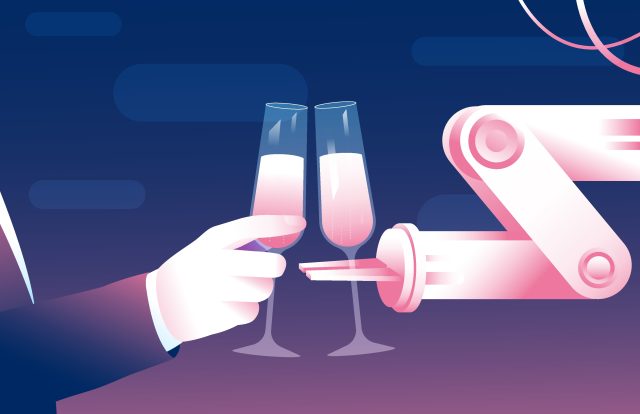Can AI democratise the drinks trade?
At last week’s db AI Conference, our panelists debated how AI software development will reshape jobs in the wine and spirits industry.

One question often arises during discussions about AI’s capabilities: is artificial intelligence going to take our jobs?
In a discussion entitled ‘AI-Software Development in Wine & Spirits’, Rob Hollands, CEO of software company Proofworks, explained that it’s “unrealistic to say AI is not going to change some industries, and therefore some jobs”.
Proofworks helps to develop solutions for distilleries using AI technology, and Hollands argued that when it comes to these businesses, using AI will mean that their processes “will be optimised to the extent that jobs will have to change”.
Hollands sees this as a positive. “the thing AI can do is look at thousands of data points that are too many for us to look at,” he says as an example. In the case of a distillery, this could be essential for replicating the environment which produced a high-quality spirit. A computer is able to assess and utilise a far higher number of data points at one time than the human brain — a positive for distillers and wine producers.
As such, AI can be used to streamline businesses and jobs, rather than take them over, “freeing up distillers to be able to do what they’re good at rather than replacing them”, Hollands added.
Partner Content
Pam Dillon, co-founder and CEO of Preferabli, a discovery and recommendation software for wine, spirits and food, agreed. “Our software is not replacing anyone. What I see in wine and spirits is optimisation,” she said.
For consumers, AI can also solve the “paradox of choice”, Dillon said, using the example of a recent trip to Alain Ducasse at The Dorchester; “I can either have dinner with my friends or I can read the Alain Ducasse wine list”.
For Professor Barry C Smith of University of London, the session’s third panelist, there is one thing AI will never be able to take over — tasting. “The thing I want all of you in the room to remember is these systems aren’t tasting a thing,” he said to the session’s audience. “A sniff is worth a thousand words.”
The way to harness AI is therefore to “combine expertise with mass data collection”, Smith said.
Level playing field
AI is already an inevitable part of daily decision making. “Technology gets woven into our daily lives,” said Hollands, even without us knowing it.
He argued that AI is actually “allowing smaller companies to compete through newer technologies, so not all just for big businesses”, providing these companies with a “really nice window to be competitive”, as long as they can stay on top of the changing AI landscape.
Related news
Behind the label: Alto Adige and the question of language




